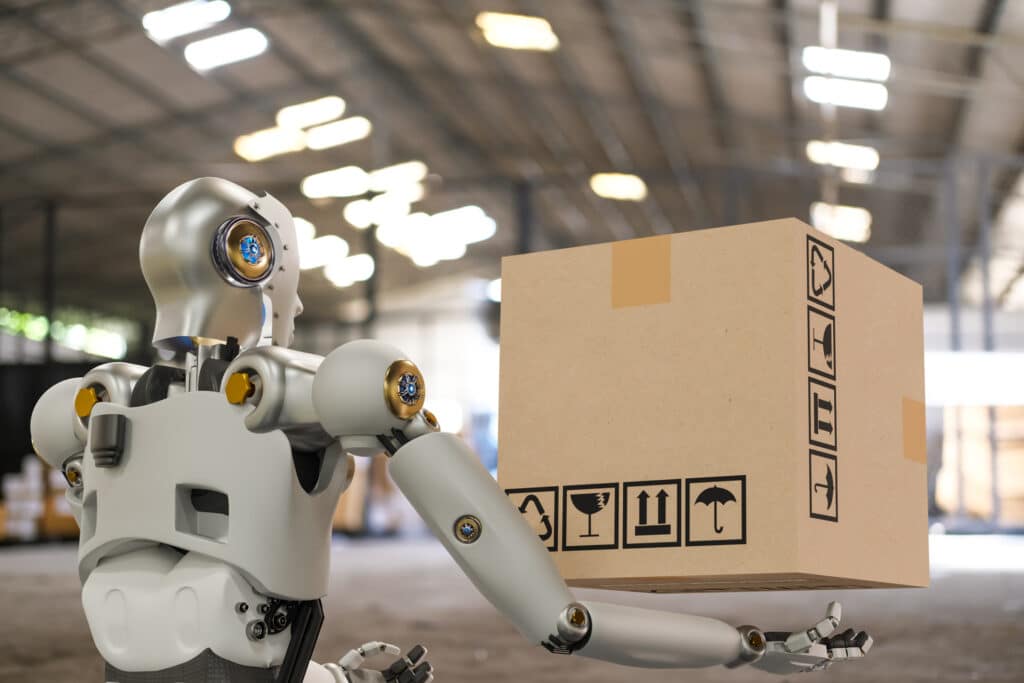Regardless of the industry, improving the competitiveness of the global supply chain has become more of a focus for organizations across the US. Demonstrations of post-COVID inflation, labor market skill-shortages, and slowing economies has organizations looking for ways to reorientate their supply chains to drive efficiency and cut out waste. In addition, rapidly changing consumer behaviors, emergence of new markets and a focus on ESG policies has Supply Chain leaders left with an ultimatum; adapt or be left behind.
Although the rise of the digital age compounds the above challenges, digitalization provides a catalyst for rapid transformation within the sector. According to the S&P Global Market Intelligence’s Supply Chain Digital Transformation Enterprise Survey 2023, 67% of shipping and logistics firms say they have a formal digital transformation strategy in place to digitize business processes*. One such transformational technology being widely adapted is the usage of Digital Twin models. By digitalizing the supply chain and creating virtual replicas, organizations can unlock strategic decision-making capabilities, optimize operations, and respond swiftly to market dynamics.
The utilization of Digital Twin models offers important use cases:
Strategic Decision Making – Digital twins can now be used to stress-test network configurations and demand forecast profiles through ‘what-if’ scenarios. An integrated view of the future is then generated, which empowers leadership teams to effectively respond to opportunities and mitigate risks.
Continuous Optimization – Organizations can leverage digital twins to continuously optimize the existing network assets, inventory, demand, supply, service, and modalities used. Localized and network wide optimizations identified can then become actionable through business transformation initiatives to drive bottom-line value.
Business Agility – Digital twins provide the agility needed to assess ephemeral opportunities or prepare for imminent threats. Conducting short-term scenario planning and testing, supported by real-time data, enable organizations to identify end-to-end implications and plot the optimal course of action.
How to ensure the digital twin becomes part of the core operational and decision-making ‘fabric’ for the organization?
Integration into S&OP or IBP – Augmenting your S&OP or Integrated Business Planning (IBP) process with the insights and optimized outputs of digital twin scenario modelling will highlight potential shortfalls, allowing appropriate actions to be taken before they affect business results or customer service. Prepared and evaluated end-to-end scenarios and options will focus the overall S&OP/IBP process, becoming an effective catalyst for collaboration across the business and providing essential information for decision making.
Accelerating Data Maturity – Design requirements from the digital twin can drive the business case for accelerating data maturity throughout the organization. Assessing the existing data maturity within the business will support data cleansing initiatives for critical databanks such as enterprise and business planning systems. Ensure that the appropriate resource firepower is available and equipped to undertake the necessary transformation.
Continuous Value Generation – Allow the digital twin to continuously drive value via ongoing optimizations of the supply chain. Real-time or latest available data, such as updated cost structures or new infrastructure, can be incorporated to continuously identify best-case opportunities in times of supply chain disruptions and normal operations.
By embracing digitalization and leveraging powerful tools such as digital twins, Supply Chain leaders can become well-equipped to optimize their current operations and maintain strategic focus on the future. Embedding the digital technologies deep within the fabric of the organization will be essential for US-based organizations to maintain competitive supply chains on the regional and global scale.
Argon & Co is a global management consultancy that specializes in operations strategy and transformation. With expertise spanning supply chain planning, manufacturing, logistics, procurement, finance, and shared services, we work together with clients to transform their businesses and generate real change. Our people are engaging to work with and trusted by clients to get the job done. We have offices in Paris, London, Abu Dhabi, Amsterdam, Atlanta, Auckland, Chicago, Dusseldorf, Hong Kong, Lausanne, Melbourne, Mumbai, Riyadh, São Paulo, Singapore and Sydney.
* “Logistics sector prioritizes digital transformation, but needs technology leadership, skills”, S&P Global Market Intelligence
Original article written by Chris Foord, Associate Partner, Argon & Co.







